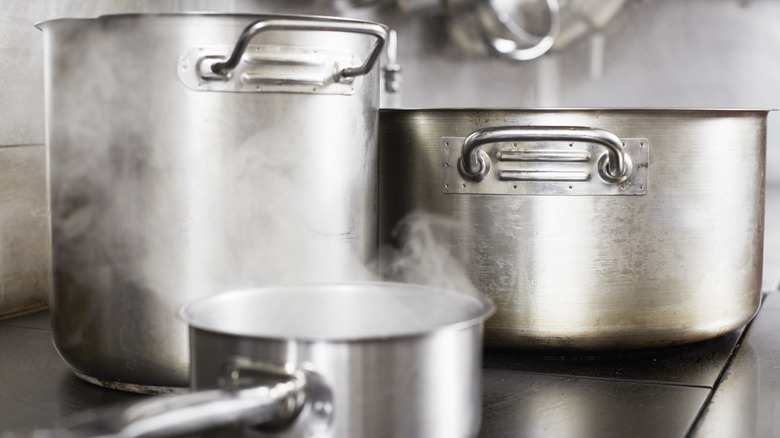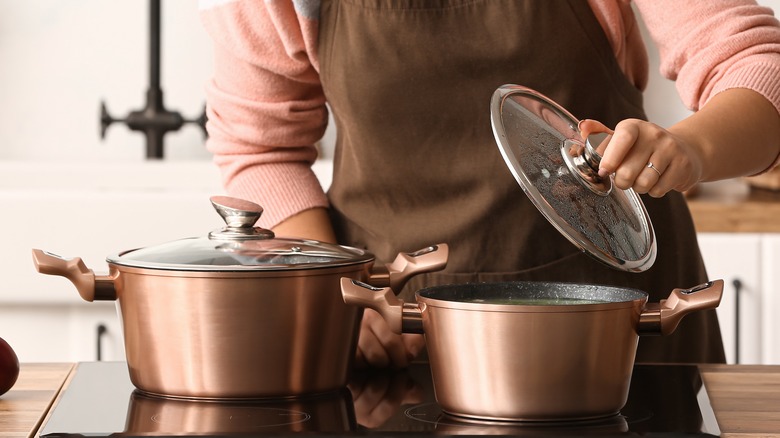For A Faster Boil, Be Sure To Start With The Right Pot
Aesthetics probably play a role in how you select your cookware — and who could blame you for choosing a colorful set of pots and pans? However, when it boils right down to it (no pun intended), there are more important factors to consider. For instance, when trying to cut down on the dull minutes spent in the kitchen pot-watching, you'll want to work with a pan that heats up more quickly or a pot that boils more rapidly. There are all sorts of tips and tricks to speed up the process of boiling water, and one of the most important is selecting the proper pot.
When determining which will send liquid into a rolling boil the fastest, dimensions make a difference. In contrast to a large vessel that takes longer to warm up, a smaller one can get the job done in a fraction of the time because there is simply less metal to heat. Since petite options may not always make sense depending on what you're cooking, the volume of liquid used to fill a pot is equally important, and why you should only use as much water as you need. Shape can play a pretty significant role, too. When in doubt about which pots and pans will lead to a quicker bubble and boil, remember that shallower and/or wider vessels allow more surface area to be in direct contact with the heat source, requiring less energy for the water to reach its boiling point.
Material also matters
Whether it's efficiency, durability, affordability, or simple variety, every kind of cookware offers some sort of benefit, but for a simple boil, you don't have to break out the big guns. A ceramic-coated cast iron pan is overkill because while it can retain heat for long cooks, we want hot water more than we want a hot pan. For a speedy boil, we suggest opting for materials that are effective conductors of heat. And a thinner and lighter pan will require a lot less energy to heat as opposed to thicker and heavier materials, which will keep you waiting for longer.
A (small or wide) copper pot tends to be the best thermal conductor as it warms up quickly and evenly and is the ideal pot to reach for if price and maintenance aren't an issue. Otherwise, budget- and maintenance-friendly aluminum can produce a faster boil unlike, say, a stainless steel pot that takes longer to heat up. No matter which pot you pick, it's wise to take a few additional steps to shave down some time. Hacks like adding a lid to trap heat or starting with hot water for a jumpstart can all help bring liquids to a boil even more rapidly than you could have imagined.

